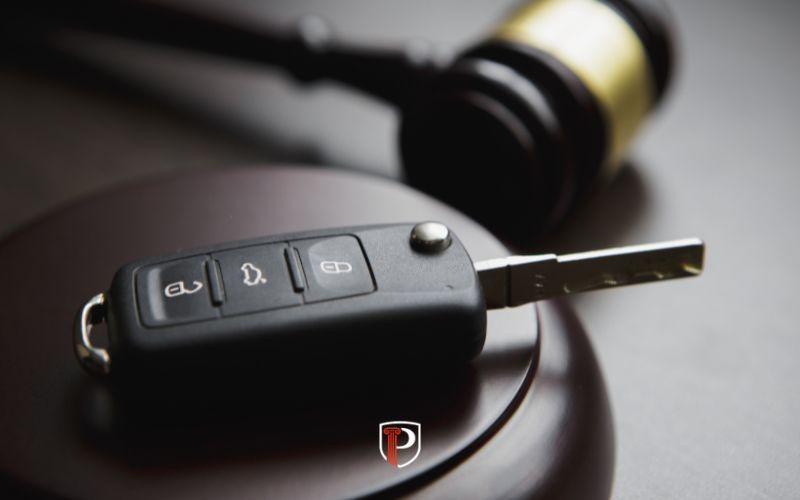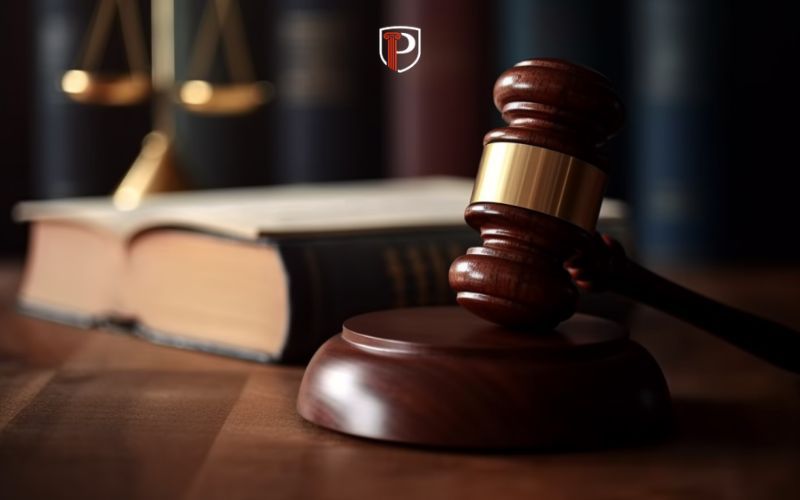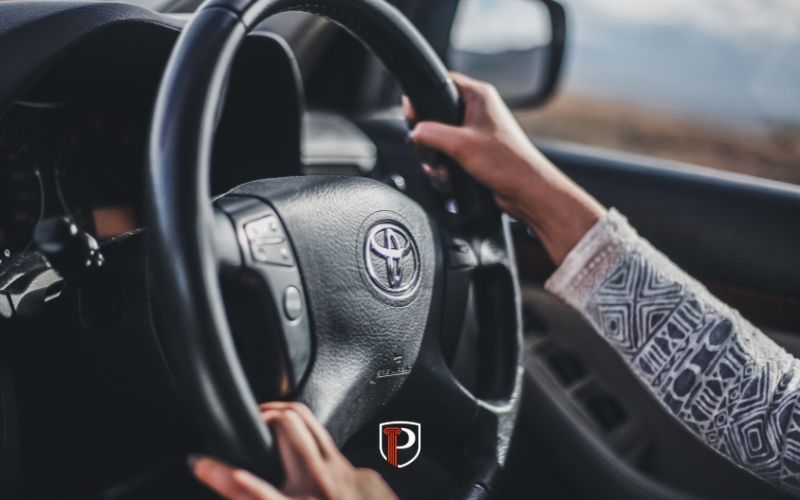Losing your driving privileges can significantly disrupt your daily life, from commuting to work to managing family responsibilities. Fortunately, if your license has been suspended in Illinois, obtaining a restricted driving permit (RDP) may offer a way to regain limited driving privileges. An RDP allows you to drive for essential purposes, such as work, school, or medical appointments, even during your suspension period. Understanding the eligibility requirements and application process is crucial to successfully securing this permit.
Navigating the steps to obtain an RDP can be complex, but you don’t have to go through it alone. Consulting with an experienced suspended license attorney in DuPage County can make the process smoother and improve your chances of approval. Call our firm at (708) 274-4499 today to discuss your situation and get guidance tailored to your needs.
What Is a Restricted Driving Permit?
A Restricted Driving Permit is a special type of license that permits individuals with a suspended or revoked license to drive under specific, limited conditions.
Its primary purpose is to ensure that essential activities, like work or medical appointments, can continue despite restrictions on driving privileges. An RDP helps individuals maintain critical responsibilities, including:
- Work: Driving to and from work or for job-related tasks.
- Medical Needs: Attending necessary medical appointments or therapy.
- Family Obligations: Transporting dependents or fulfilling essential family duties.

The permit is not intended for unrestricted driving but provides a way to regain limited driving capabilities while complying with legal and safety requirements.
Determine Eligibility for an RDP
Obtaining an RDP in Illinois requires meeting certain criteria to ensure that the permit is granted to individuals who can demonstrate a genuine need to drive. The process is designed to allow those with suspended or revoked licenses to regain limited driving privileges under specific restrictions.
Basic Eligibility
To be eligible for an RDP, you must have a suspended or revoked license. This applies to situations such as a DUI-related suspension or revocation. The Illinois Secretary of State requires you to demonstrate that not having a license causes significant hardship, whether it impacts your ability to work, attend school, access medical appointments, or fulfill other essential responsibilities.
Conditions for Approval
In addition to demonstrating a hardship, you must provide proof that driving is necessary for work, school, medical needs, or other eligible purposes. The Secretary of State will require documentation that supports this necessity, such as an employer letter, school enrollment records, or medical appointment schedules.
Your driving record will be reviewed before getting a license back, and a history of repeated violations or serious offenses may affect your eligibility for the RDP. Additionally, in cases of DUI-related suspensions, you may be required to complete a drug and alcohol evaluation and comply with any treatment or education programs that are recommended.
Application Process
The application process for an RDP involves submitting a formal request to the Illinois Secretary of State. You'll need to provide supporting documents that demonstrate your need for driving privileges. Depending on the situation, you may be required to attend a drivers license hearing to present your case. If your RDP is related to a DUI conviction, you may also need to enroll in the Illinois Monitoring Device Driving Permit (MDDP) program and agree to use an ignition interlock device (BAIID). Meeting these requirements can allow you to regain limited driving privileges while continuing to fulfill your obligations under the law.
Requirements to Get a Restricted Driving Permit
To obtain a Restricted Driving Permit in Illinois, several necessary requirements must be met, particularly if your suspension is related to a DUI conviction.
First, you will be required to undergo an alcohol or drug evaluation. This assessment helps determine the extent of your alcohol or drug use and can influence the conditions for granting your RDP. Based on the results, the court may require you to complete treatment programs or other rehabilitation efforts to demonstrate your commitment to addressing any substance abuse issues.
Additionally, proof of rehabilitation is often needed. If you’ve completed treatment programs or have been abstinent from alcohol or drugs, you may need to provide documentation as evidence of your progress. This may include certificates of completion from any court-ordered programs or proof of participation in support groups.
For DUI-related suspensions, you may also need to get a BAIID installed in your vehicle. This device prevents the car from starting if alcohol is detected on your breath, and it may be required as a condition for receiving an RDP. The BAIID is typically mandatory for drivers convicted of DUI who wish to regain limited driving privileges.
It’s essential to meet all the outlined requirements to ensure that your application for an RDP is processed efficiently and approved.
What to Expect From a Hearing With the Illinois Secretary of State for a Restricted Driving Permit
A hearing with the Illinois Secretary of State (SOS) is a critical step in the process of applying for a Restricted Driving Permit. Here's what you can expect:
Preparation for the Hearing
Before the hearing, gather all the necessary documentation. This may include your alcohol/drug evaluation results, proof of rehabilitation (such as certificates of completion for treatment programs), and any other required paperwork like a copy of your driving record. Additionally, be prepared to explain why you need an RDP and how it will impact your life, such as work, school, or medical obligations.

The Hearing Process
The hearing itself typically takes place at a local SOS facility or through a hearing officer. You will meet with the hearing officer who will review your case and the supporting documentation you've provided. The officer may ask you questions about your driving history, the circumstances surrounding your license suspension, and your rehabilitation efforts.
Factors the Hearing Officer Will Consider
The hearing officer will evaluate several factors when determining whether to grant your RDP:
- The reason for your license suspension (DUI, traffic violations, etc.)
- Your driving history, including any prior offenses
- Completion of any court-ordered programs or treatment
- Evidence of rehabilitation, such as sobriety or participation in support programs
- Whether the RDP is necessary for essential activities (work, school, medical appointments)
Possible Outcomes
There are a few potential outcomes of the hearing:
- Approval: If the hearing officer is satisfied with your documentation and responses, your RDP application may be approved. You’ll then be issued a restricted permit with the conditions set by the officer, such as the installation of a BAIID or restrictions on driving hours.
- Denial: If the officer finds that you do not meet the eligibility requirements or if your documentation is insufficient, your application may be denied. You will be notified of the decision and, if applicable, the reasons for the denial.
- Postponement: In some cases, the hearing officer may request more information or time to review your case, which could lead to a postponement of the decision.
If your RDP is granted, you will receive instructions on how to proceed, including how to install a BAIID (if applicable) and any additional requirements. If your application is denied, you may have the option to appeal the decision or apply again after meeting any additional requirements.
Restrictions You Need to Comply With to Keep an RDP
A Restricted Driving Permit (RDP) in Illinois allows individuals with a suspended or revoked license to drive under specific conditions. While this permit provides limited driving privileges, there are several key restrictions:
- Driving Times: With an RDP, drivers can only operate their vehicles during certain hours of the day. Typically, driving is restricted to daylight hours or other designated times, such as when commuting to work or attending school. The exact driving hours will be outlined as part of your permit.
- Driving Routes: Drivers with an RDP are limited to driving along specific routes. These routes are generally those that are necessary for fulfilling the obligations that led to the suspension, such as traveling between home, work, school, medical appointments, or court-ordered programs. Unauthorized detours or routes outside of the permitted paths are not allowed.
- Vehicle Restrictions: Depending on the circumstances surrounding the suspension, you may be required to drive a specific vehicle that meets the state's requirements. For instance, if a BAIID is required, you will need to ensure that the vehicle you drive has the device installed and fully operational.
- Driving Purpose: Your RDP allows you to drive only for the specific purposes related to the terms of your suspension. This typically includes driving to work, school, medical appointments, or attending court-ordered programs. Driving for personal reasons, such as social visits or leisure, is not permitted under the RDP.
- BAIID Requirement: If your suspension was due to a DUI offense, you may be required to install a BAIID in your vehicle. This device tests your breath for alcohol before allowing the car to start, and in some cases, it may require periodic tests while driving. Failing to comply with this requirement can result in the revocation of your RDP.
These limitations are designed to ensure that drivers with an RDP only use their driving privileges for necessary activities and maintain a level of accountability to reduce the risk of reoffending. Violating any of these conditions may result in the revocation of your permit and additional legal consequences.
Can I Apply for an RDP Immediately After My License is Suspended?
You generally cannot apply for a Restricted Driving Permit immediately after your license is suspended. The specific timeline depends on the reason for your suspension and the type of suspension you have.
For suspensions related to DUI offenses, the law often requires you to wait a specified period before applying for an RDP. For example, if your license was suspended due to a DUI, you may need to wait at least 30 days before applying, depending on the circumstances of your case.

In other cases, the wait time may vary, and you may need to meet certain eligibility criteria before applying for the permit. It’s important to understand that certain suspensions, such as those due to major violations, may carry longer waiting periods or may not allow an RDP at all.
Additionally, if you are required to complete any programs, such as a DUI education course, or if your suspension is tied to specific court orders, you may need to fulfill these requirements before submitting an application.
For specific guidance on your case, it’s best to consult with a drivers license attorney or check with the Illinois Secretary of State's office for details on the application process and eligibility
Get Legal Help to Secure Your Restricted Driving Permit
Regaining the ability to drive with a restricted driving permit can provide much-needed relief during a license suspension. Understanding the process and requirements is essential to avoid delays or denials. Whether you're navigating the application process or facing challenges with your suspension, having skilled legal guidance can make all the difference.
If your license is suspended in Illinois, don't face the hurdles alone. Our experienced attorneys can help you get a restricted driving permit and get back on the road legally. Contact us today to discuss your options and take the first step toward reclaiming your independence.
